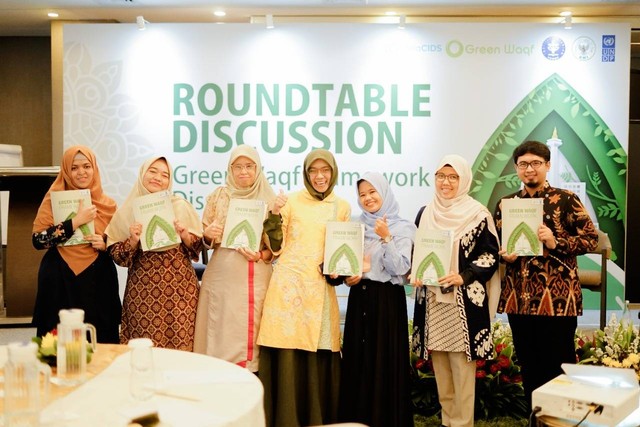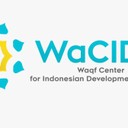Tentang KamiPedoman Media SiberKetentuan & Kebijakan PrivasiPanduan KomunitasPeringkat PenulisCara Menulis di kumparanInformasi Kerja SamaBantuanIklanKarir
2025 © PT Dynamo Media Network
Version 1.101.0
Konten dari Pengguna
Green Waqf Framework – Islamic Principles to Support Development Process
24 September 2022 10:45 WIB
Tulisan dari WaCIDS (Waqf Center for Indonesian Development and Studies) tidak mewakili pandangan dari redaksi kumparan

ADVERTISEMENT
Jakarta, September 21, 2022: Economic sustainability is a priority agenda of Indonesia’s G20 Presidency in 2022. Islamic social finance plays a key role in equitable income distribution, maintaining purchasing power, and creating business opportunities for all. To accelerate productive economic activities and ultimately foster inclusive and sustainable economic growth Islamic social finance is required.
ADVERTISEMENT
Indonesia is the first global and retail sovereign Green Sukuk issuer in the world. Since its first issuance in 2018, Green Sukuk for four years has been issued seven times to finance projects/programs of Eligible Green Sectors. In order to support the development of social investment and productive waqf, the Government of Indonesia also issues Cash Waqf Linked Sukuk (CWLS) by blending Islamic finance and impact investing for the Sustainable Development Goals (SDGs).
Climate change has brought a high-cost impact on vulnerable and low-income people. Along with efforts to the SDGs and Paris Agreement targets achievement, a financing gap holds in the route to tackle climate change. The waqf instruments may be leveraged to answer this challenge. Although the property of the waqf has benefited the community, particularly communities in the surrounding areas, the economic value of the waqf can be maximized to realize sustainable development goal projects and contribute to poverty reduction and inequality programs in Indonesia, primarily climate actions and realizing the net-zero financing.
ADVERTISEMENT
The Green Waqf framework research development covers background, conceptualization, business model, plan, stakeholder mapping, pilot study/best practices within waqf and climate change initiatives, involving diverse stakeholders such as the government, private sector, and grass root communities. This report could serve as a worldwide reference on Islamic finance from Indonesia, which has demonstrated actions on advancing Islamic finance for sustainable development and addressing the climate crisis. In addition, the report provides solid evidence that waqf, in general, may create revenue and finance productive activities that provide returns or profit for future financing. As a result, waqf could be a suitable option for financing or promoting social welfare while avoiding economically burdensome interest rates.
ADVERTISEMENT
“Waqf provides a window of opportunity to address environmental crises. The economic value of waqf can be maximized and can also contribute to programs working towards poverty reduction. Given that achieving the SDGs requires substantial financial and technical resources, this framework aims to utilize waqf to support climate action with real socio-environmental impacts,” said Qing Xu, UNDP Regional Climate Finance Specialist.
“Green Waqf is an initiative that is very relevant to the Indonesian context, considering that more than 50% of the workforce comes from the agriculture, livestock, and forestry sectors which can be affected by climate change. It is an excellent initiative to bring affordable renewable energy,” said Imam Teguh Saptono, Vice Chairman of BWI.
ADVERTISEMENT
The report consists of six chapters. Chapter 1 elaborates on existing climate and energy issues in Indonesia as well as challenges in financing to fulfil Nationally Determined Contribution (NDC). Chapter 2 explains the concept of waqf and its potential to solve environmental and social welfare problems. Chapter 3 focuses on the Green Waqf Framework, which also discusses four stages proposed: i) preconditional stage, ii) consolidation stage, iii) project development stage, and iv) mainstreaming stage. Chapter 4 provides the business model foundation for Green Waqf project implementation, including stakeholder mapping and analysis, which mainly consists of Islamic finance-related stakeholders and green-related stakeholders. Chapter 5 elaborates on several evidence-based practices on environmental-related waqf projects. Chapter 6 summarizes policy recommendations.
ADVERTISEMENT
United Nations Development Programme (UNDP) and The Indonesian Waqf Board (Badan Wakaf Indonesia/BWI), supported by IPB University, Waqf Centre for Indonesian Development and Studies (WaCIDS), the Green Waqf Movement Team, and NDC Support Programme to develop this green framework, which aims to utilize waqf to support climate actions in impoverished areas with tangible social-environmental impacts.

